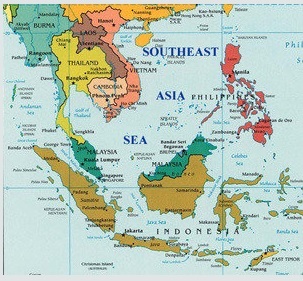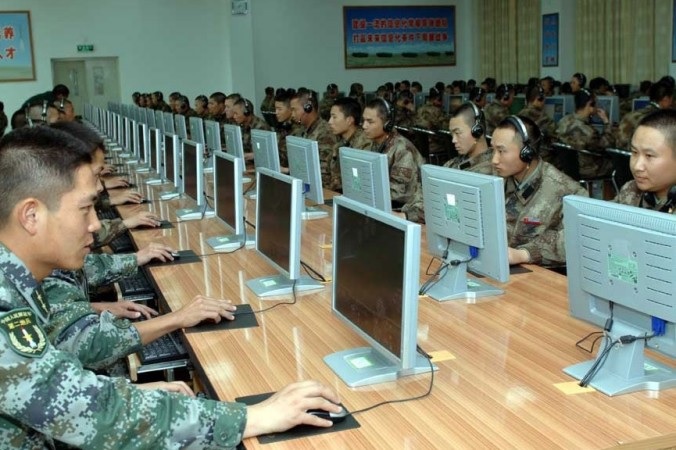Trang Chính
Blog Phạm-Hoàng-Tùng:Biển Cả Và Con Người:
Bưu-Hoa Việt-Nam:
Chết Bởi Trung Cộng:
Địa-Linh Nhân-Kiệt Của Việt-Nam:
Điện-Toán - Tin-Học:
Ebooks Hồi-Ký - Bút-Ký:
Hịch Tướng Sĩ:
Hình-Ảnh Quân-Lực Việt-Nam Cộng-Hòa
History Of Viet Nam
Hoàng-Sa Trường-Sa Là Của Việt- Nam:
Hồ-Sơ Chủ-Quyền Quốc-Gia Việt- Nam
Hội Sử-Học Việt-Nam
Vietnam Human Rights - Human Rights Activist
Lá Thư Úc-Châu
Lịch-Sử Việt-Nam Cận-Đại:
Lịch-Sử Việt-Nam Ngàn Xưa:
Ngàn Năm Thăng Long (1010 - 2010)
Nghĩa-Trang Quân-Đội Biên-Hòa
Nguyên-Tử Của Việt-Nam Và Quốc- Tế
Người Dân Khiếu-Kiện:
Phụ-Nữ, Gia-Đình, Và Cuộc Sống:
Quốc-Tế:
Sitemap:
Southeast Asia Sea:
Tiền-Tệ Việt-Nam:
Tin Nhắn, Tìm Thân-Nhân Mất-Tích, Mộ Tìm Thân-Nhân:
Tin-Tức Thời-Sự Việt-Nam:
Thư-Tín:
Tòa Án Hình Sự Quốc Tế Về Việt Cộng và Trung cộng:
Tưởng-Niệm 50 Năm 1963 - 2013 :
Ủng Hộ Trúc-Lâm Yên-Tử - Donate:
Thư Mục Các Trang Web - Weblinks:
Cây có cội, nước có nguồn. Toàn dân Việt-Nam ngàn đời ghi nhớ ân đức Quốc Tổ Hùng Vương
Southeast Asian Seas


Chuyên mục Southeast Asia Sea được thành lập nhằm khẳng định chủ quyền biển Đông từ hơn 10 ngàn năm của dân tộc Việt-Nam.
Từ hơn 10 ngàn năm qua, dân tộc Việt-Nam đã sống với biển, gần biển. Đây là nền văn minh chói sáng của tộc Việt.
Tình cảm gắn bó giữa biển và con người Việt Nam đã có chiều dài hàng 10 ngàn năm và tình cảm này vĩnh viễn không thể nào chia cắt được cho dù trải qua nhiều sự thay đổi của lịch sử.
CHINA SECURITY: In Cybersecurity, the Chinese Regime Has Become the Boy Who Cried Wolf
By Joshua Philipp, Epoch Times | December 7, 2015
Last Updated: December 8, 2015 8:08 am

Chinese soldiers work at computers. U.S. officials are slow to believe the Chinese regime's claims about combating cyberattacks against the United States. (mil.huanqiu.com)
This news analysis was originally dispatched as part of Epoch Times China email newsletters. Subscribe to the newsletters by filling your email in the “China D-brief” box under this article.
The first U.S.-China dialogue under a new cybersecurity agreement concluded last week—but what was left unmentioned was much more important than what was said.
According to Xinhua, the official mouthpiece of the Chinese Communist Party, the Chinese representatives claimed they identified the individuals who breached the U.S. Office of Personnel Management (OPM), and explained that “the case turned out to be a criminal case rather than a state-sponsored cyber attack as the U.S. side has previously suspected.”
The statement is unlikely to be a surprise to anyone following cybersecurity. The Chinese regime always denies its involvement in cyberattacks, regardless of evidence. Most interesting is that in a statement giving a brief recap of the meeting, the U.S. Department of Justice gave no mention of the discussion on the OPM hack.
In a way, the Chinese regime has become a boy who cried wolf: it has lied so often that many experts—including many U.S. officials—don’t give its claims much weight.
The Washington Post reported that even prior to the cybersecurity meeting from Dec. 1 to Dec. 2, the Chinese regime claimed it “arrested a handful of hackers it says were connected to the breach” of OPM, yet also cited an unnamed U.S. official stating “we don’t know that if the arrests the Chinese purported to have made are the guilty parties.”
“There is a history [in China] of people being arrested for things they didn’t do or other ‘crimes against the state,'” the official said.
The bilateral meeting between the Chinese Minister of Public Security, the U.S. Secretary of Homeland Security, and the U.S. Attorney General was the first under the new U.S.-China cybersecurity agreement, announced by President Barack Obama and Chinese Communist Party leader Xi Jinping on Sept. 25.
The stance brought to the table by the Chinese representatives was likely well in line with what U.S. officials expected.
John Carlin, assistant attorney general for national security, explained during a Dec. 3 presentation that after the U.S. Department of Justice indicted five Chinese military officers in May 2014 for their involvement in state-run cyberattacks, the Chinese regime altered its line on cybersecurity.
The Chinese regime’s initial response, Carlin said, was of “indignant denials.” Just a year later, however, its response moved towards one claiming that they also oppose and combat theft of commercial secrets—and other forms of cyberattacks.
The shift in official line seems to chime with the ancient Chinese saying: “It’s the thief who yells ‘stop thief.'”
Of course, there are plenty of reasons why experts would choose to not believe the Chinese regime’s claims that it arrested hackers, or that it had nothing to do with the breach.
The Chinese regime’s state-sponsored cyberattacks have already been deeply exposed. Most of its military hackers operate out of its General Staff Department, Third Department. In July, the Project 2049 Institute think tank even traced one the Chinese hacker units to a government office in Shanghai.
The OPM breach was tied to several other Chinese state-sponsored cyberattacks, which cybersecurity experts dubbed “Deep Panda.” The same hackers who breached the OPM also breached health insurance company Anthem.
MORE:
Murder, Money, and Spies Investigative Series - http://www.theepochtimes.com/n3/1749860-murder-money-and-spies-investigative-series/
-
CHINA SECURITY: China Reins in Its Hacker Army - http://www.theepochtimes.com/n3/1894442-china-security-china-reins-in-its-hacker-army/
The stolen private information is being used by Chinese agencies to build a database on Americans. An insider in China detailed this database, and told Epoch Times that the system for big data analytics is based on the same database the Chinese regime uses for spying on its own people.
It is also possible that Chinese officials were telling a half-truth, and that the hackers behind the OPM breach were not officially under the Chinese regime or its military. But, with bit of background on the Chinese cyber army, this still wouldn’t free them from blame.
The Chinese regime revealed the structure of its cyber army in the 2013 edition of its military publication, “The Science of Military Strategy.” Its cyber army has three tiers: the first being specialized military units, the second being specialists in civilian organizations and government agencies, and the third being groups outside the Chinese regime “that can be organized and mobilized for network warfare operations.”
Thư-Viện Bồ Đề Online @ Trúc-Lâm Yên-Tử
 Việt-Nam Sử-Lược Tân-Biên_Lịch-Sử Việt-Nam
Việt-Nam Sử-Lược Tân-Biên_Lịch-Sử Việt-Nam
***
Bài Viết Tin-Tức Thời-Sự Mới Nhất có liên quan đến Lịch-sử Việt- Nam và Lich su viet nam
Vua Trần Nhân Tông:
Thư-Viện Bồ Đề Online:
Trang Bài Viết Của Các Tác Giả :(Bằng-Phong Đặng-Văn-Âu; Bình-Minh; Bút Xuân Trần-Đình-Ngọc; Dạ-Lệ-Huỳnh; Đặng-Quang-Chính; Điệp-Mỹ-Linh; nguyễn-duy-ân; Nguyễn-Hàm Thuận-Bắc; Ông Bút; Trần-Đăng_Chân-Chính; Đặng-Huy-Văn; Kita Kha; Lê-Anh-Hùng; Lu-Hà; Mây Cao-Nguyên; Mây Ngàn; Mặc-Khách; Minh-Di; Nguyễn-Doãn-Kiên; Nguyễn-Nhơn; Nguyễn-Quang-Duy; Nguyễn-Thái-Sơn; Nguyễn-Thu-Trâm 8406; Trần-Văn-Giang; Quách-Vĩnh-Thiện; Mai-Hoài-Thu; Minh-Vân; Nguyễn-Chí-Thiện; Nguyễn-Khôi; Nguyễn-Thị-Thanh; TL Nguyễn-Việt Phúc-Lộc; Nhật-Hồng Nguyễn-Thanh-Vân; Phạm-Ngọc-Thái; Phan-Văn-Phước; Quê-Hương; Thanh-Sơn; ThụcQuyên; ThụcQuyên; Vĩnh-Nhất-Tâm; Trang Trần-quốc-Kháng_Truyện Dài Thời Chiến-Tranh Việt-Nam (Ebooks):
***
Châm Biếm - Điện-Ảnh - Thơ Văn - Sáng-Tác - Hồi-Ký - Triết-Học - Truyện Ngắn
________
- Giới-Thiệu Các Web, Blog Mới - Trúc-Lâm Yên-Tử